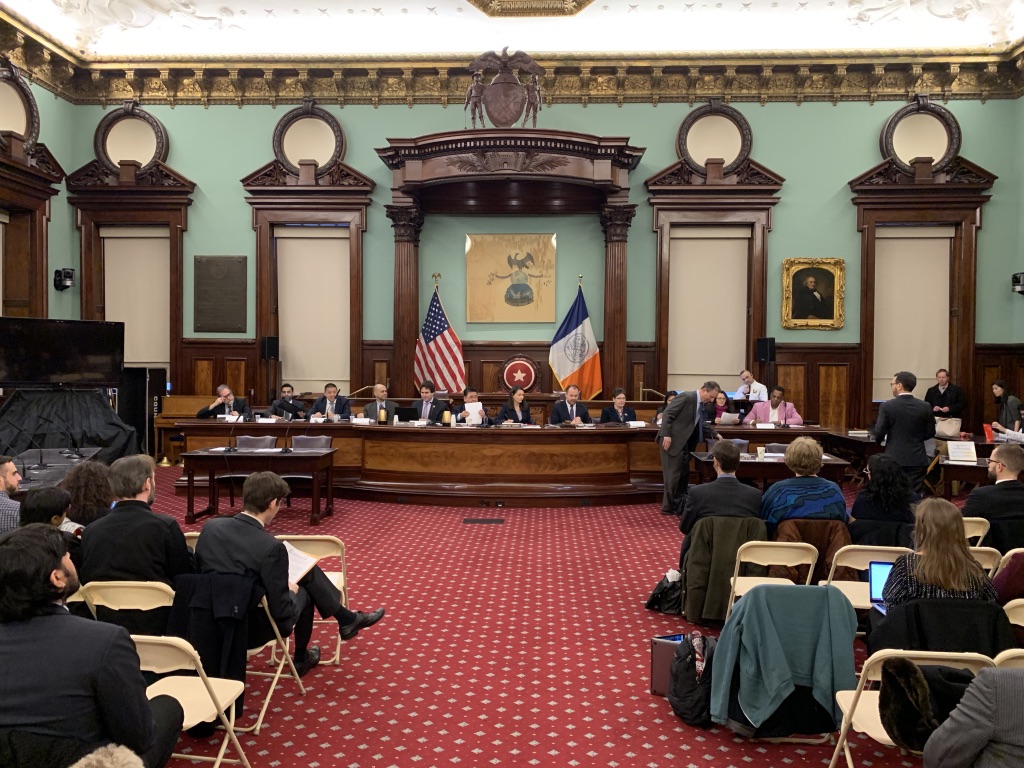To: New York City Council – Committee on Technology
From: Noel Hidalgo, Executive Director of BetaNYC
Re: NYC 311 Oversight Hearing
Wednesday, 27 October 2021
Dear Chairs and Council Members,
Introduction
BetaNYC is a civic organization dedicated to improving all lives in New York through civic design, technology, and data. We envision an informed and empowered public that can leverage civic design, technology, and data to hold government accountable, and improve their economic opportunity.
We were founded in 2008 as a “meetup” to discuss open government in NYC. Our work empowers individuals and local communities to build a civically‐engaged technology ecosystem and provide for an honest and inclusive government. We want New York’s governments to work for the people, by the people, for the 21st century.
BetaNYC demystifies design, technology, and data to the point where anyone can use it, create it, and participate in the decision making process. We host a number of online platforms that provide the general public a mechanism to share ideas and data.
The pandemic has reinforced the need for a single point of contact to government services. To improve NYC 311, there are some fundamental questions to ask:
- With unprecedented service requests, how is NYC 311 adapting its interfaces – phone, web, and app? What type of metrics does it use to improve response times?
- How does NYC 311 do end user testing of the website and mobile app?
- When will the mobile app be available in languages other than english?
- Many community members have requested a publicly accessible API and were promised an API years ago, when will the public have access to an API?
Thank you NYC 311 staff
Thank you 311 call operators and staff for being our municipal heroes. Through the pandemic you helped my neighbors through the toughest times. I want to make sure that you know that NYC’s civic tech community appreciates your dedication to serving all of our communities.
We also want to thank the 311 team for making a successful platform migration. Over the last year, we’ve seen better open data and automatic geocoding. We absolutely appreciate that.
Concerns about the legislation:
- Int 2303-2021 – DOITT updating 311 complaint types and reporting on such updates. – We support parts of the bill and wish that every service request and descriptor was openly posted to the website. As NYC 311 is about transparency and access, 311 should be transparent about their process. There is a “dataset” on web content services but the data hasn’t been updated since 27 June 2019.
- Int 0101-2018 – 311 transmitting image and video data for service requests or complaints. – We support the bill but with many concerns around privacy.
- Int 1356-2019 – Reports of illegal towing to 311. – We shouldn’t be legislating specific service requests, but the system should be adapting on a frequent basis.
- Int 2077-2020 – Number of steps to submit service requests or complaints on the 311 website and mobile application. – Support with reservations. In general, we do not think user interfaces should be legislated. We wish that NYC 311 had a standard practice of testing the app with every day New Yorkers.
Specific statements about NYC 311 Service
- Blanket 311 responses are sad. We know that 311 can’t fix agencies, but we wish Agencies did a better job responding to requests with more detailed responses.
- We are very disappointed that publicly accessible APIs are no longer a priority.
- As 311 continues to be the best portal to government services, it is clear that there needs to be user interface testing with New Yorkers. The service must make sense to all users.
- We are very disappointed that NYC’s website and digital tools are so convoluted that my neighbors and friends resort to calling 311 — therefore increasing call volumes. Throughout the pandemic and vaccine roll out, family, friends, and neighbors ended up calling 311 because the City’s websites were not accessible in their language or via a screen reader.
Feedback on the website and app:
- Not all agencies are on board with 311 — It is imperative that all agencies tie into the same interface. Personally, I still have a problem with a street lamp pouring light into my apartment that the DOT can’t seem to fix. I have no way of tracking this service request.
- Digital divide — The digital language of 311 is still in english and is not mobile responsive. There is an inconsistent user experience on the web to mobile.
- Inconsistent user experience, Mobile — Lack of user accounts on mobile devices. I have to keep my own database to keep track of service requests I submit. Additionally, there are some requests that can only be done via website or phone. After pouring through the app or website, then being told to call someone beyond frustrating.
- Inconsistent user experience, Language — There is a lot of text to filter through on the website. It takes more time to find the specific complaint type relevant to each case, than it does to search.
- Alternatively, the app groups similar complaint types, asking for the specific type in a short drop down on the request form making the process much more efficient. However, a number of (specific) complaint types can only be found on the website using online shortcuts from the app resulting in an inconsistent user experience.
The pandemic has reinforced the need for a single point of contact to government services. We urge NYC to invest in NYC 311 and Agency integration. Let me say this bluntly, if this Administration does not center 311 services and integration, it does not care how agencies respond to neighborhood needs.
